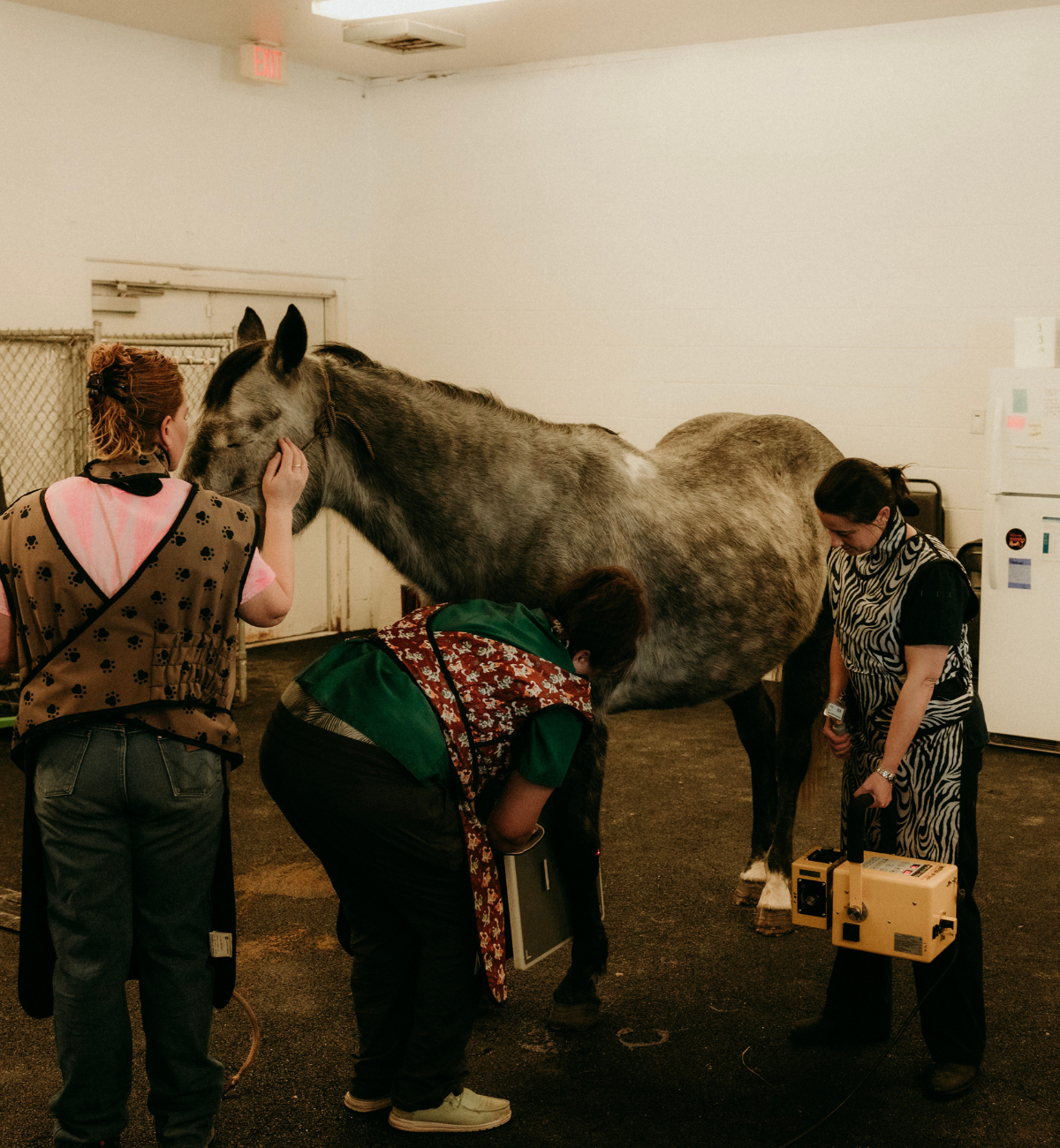Equine Lameness
Discover experienced equine lameness care at The Stock Doc Veterinary Services. We offer precise diagnostics and tailored treatments for your horse’s optimal well-being.
Understanding Equine Lameness
Equine lameness is a common concern among horse owners, and here at The Stock Doc Veterinary Services in Riverton, WY, we are committed to offering comprehensive care for your equine companions. Lameness, characterized by alterations in a horse’s gait or movement, signals potential pain or discomfort. Our dedicated veterinary team specializes in identifying and addressing the underlying causes of equine lameness to prioritize the well-being of your horse.
Our Veterinary Services
Our suite of services is designed to effectively diagnose and treat equine lameness. Our experienced veterinarians utilize advanced diagnostic techniques, including detailed physical examinations, flexion tests, and diagnostic imaging such as X-rays and ultrasound. These tools enable us to identify the source of lameness precisely.
Benefits of Our Services
Tailored Treatment Plans
Recognizing the uniqueness of each horse, we create individualized treatment plans to meet the specific needs of your horse, ensuring optimal care for their situation.
Experienced Veterinary Team
Our team comprises seasoned veterinarians with a profound understanding of equine health. Their expertise allows us to deliver high-quality care for horses facing lameness issues.
Holistic Rehabilitation
In addition to diagnosis and treatment, we focus on comprehensive rehabilitation. Our veterinary team will guide you through exercises and practices to promote healing and prevent future issues.
When to Seek Our Services
Timely intervention is critical when it comes to equine lameness. If you observe any of the following indicators, it is advisable to consult our veterinary team:
- Visible Limping or Uneven Gait: If your horse shows obvious signs of lameness, such as limping or an uneven gait, it may indicate discomfort.
- Reluctance to Move: When your horse displays reluctance to walk, trot, or canter, it could be indicative of lameness.
- Swelling or Heat in Limbs: Inflammation or warmth in the limbs may indicate underlying issues causing lameness.
- Behavioral Changes: Sudden shifts in behavior, like resistance to being saddled or alterations in temperament, should not be overlooked.

